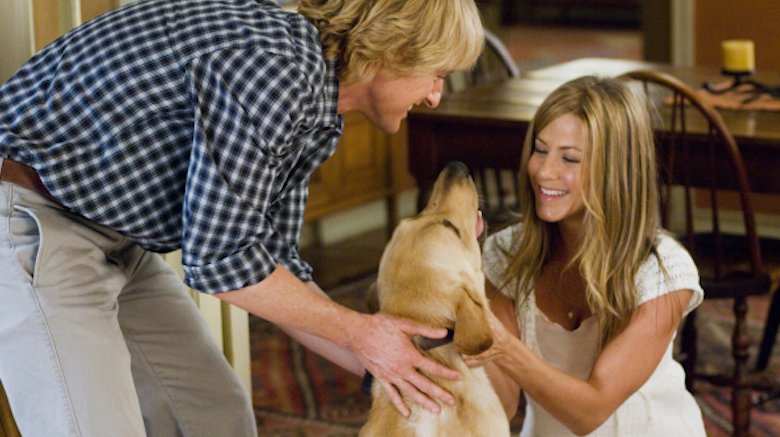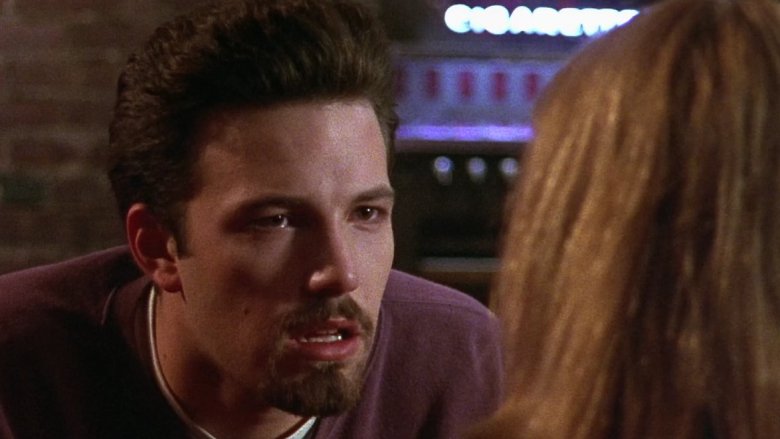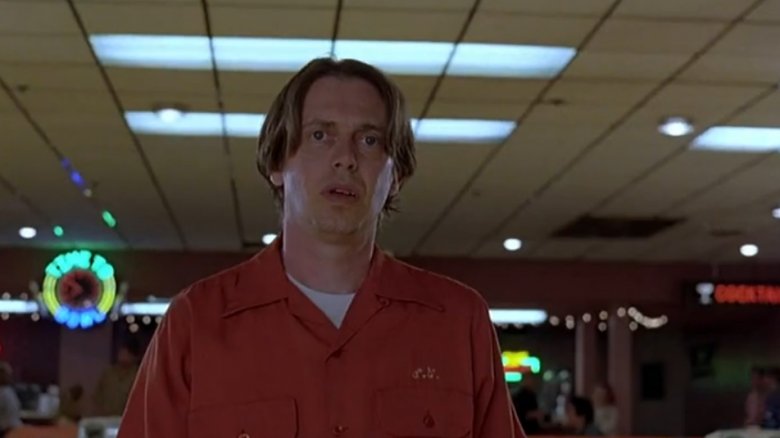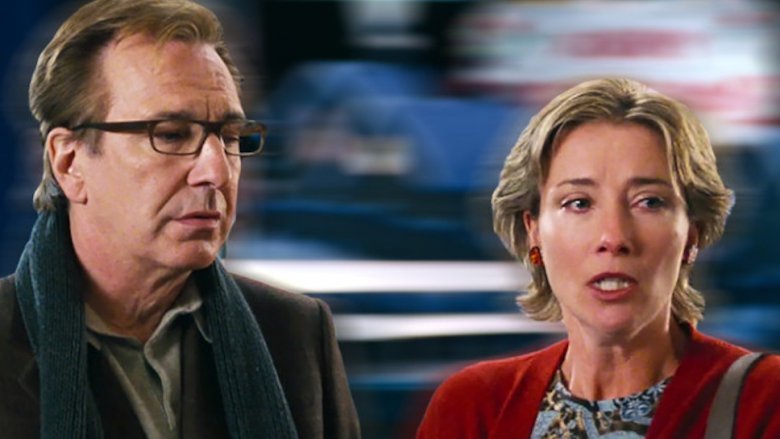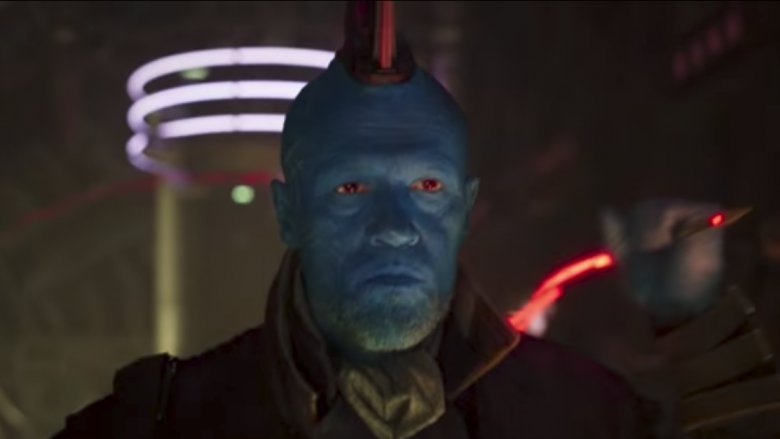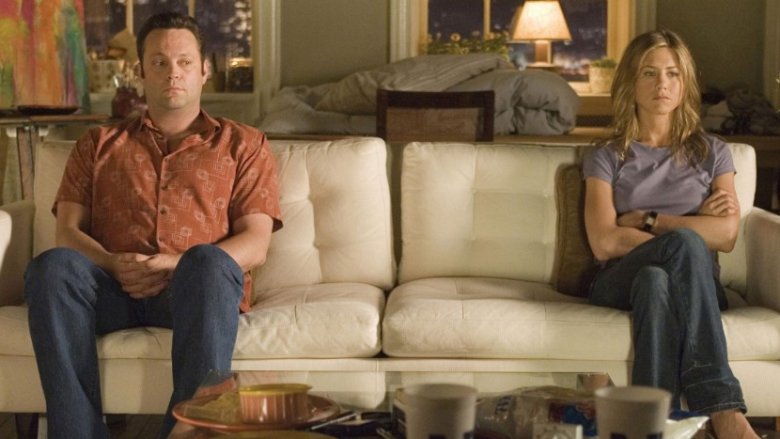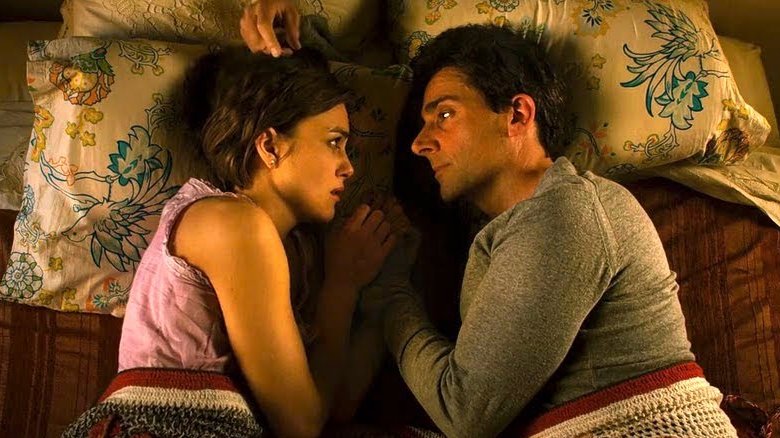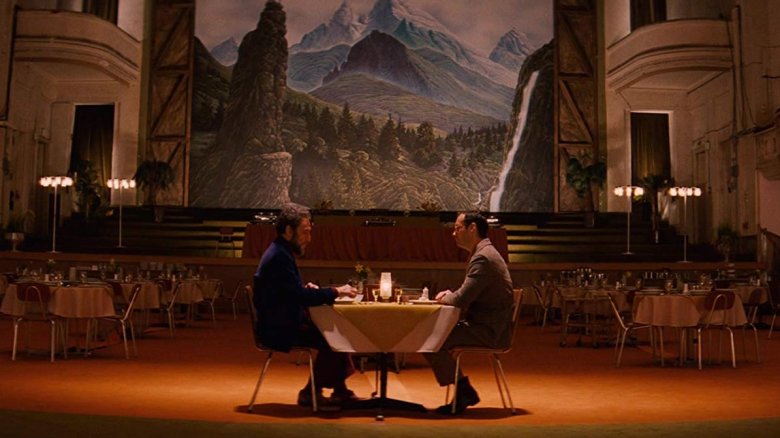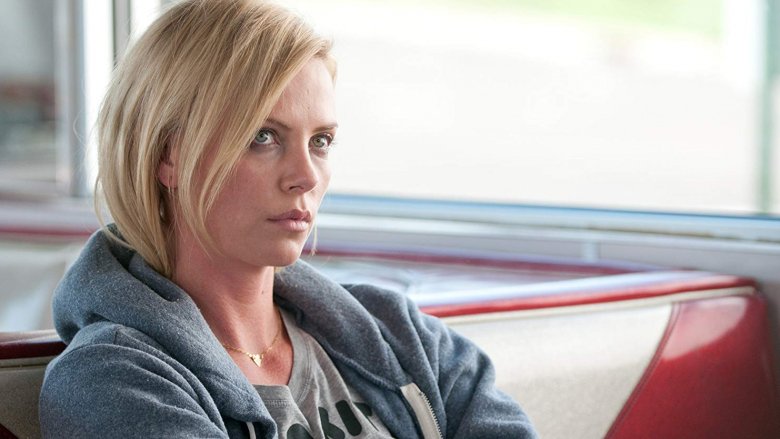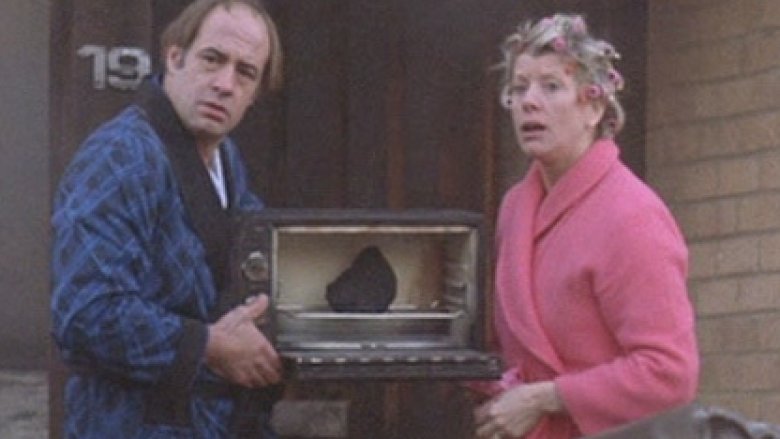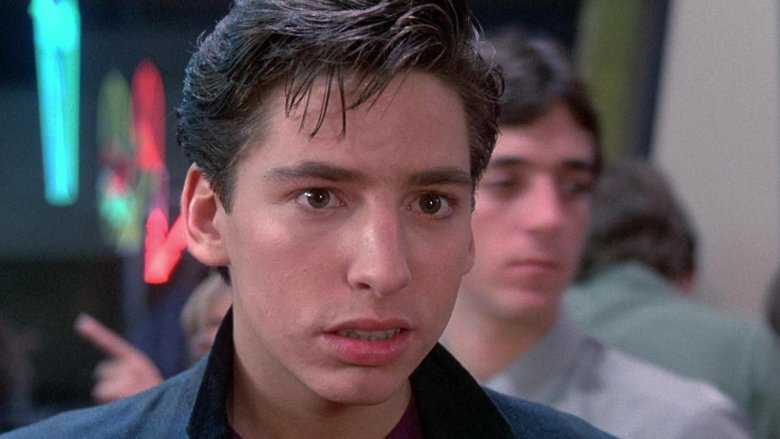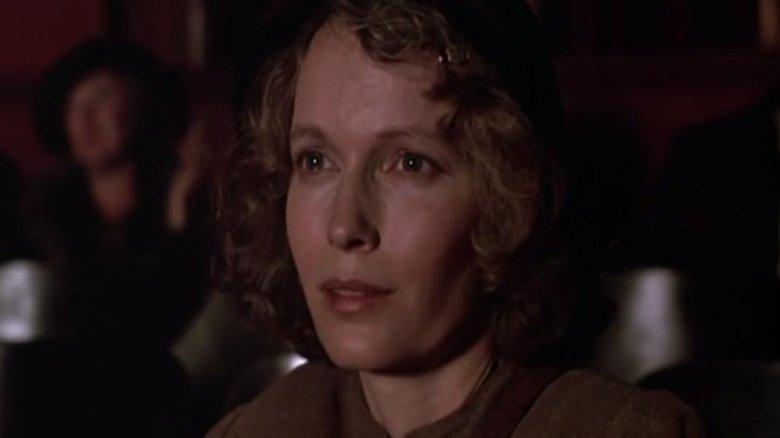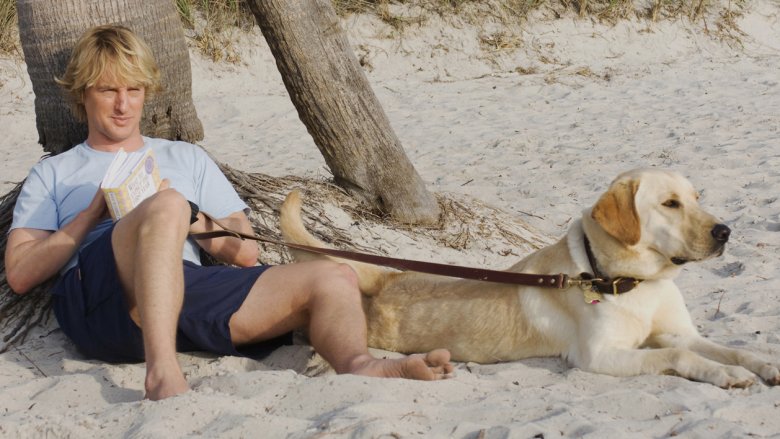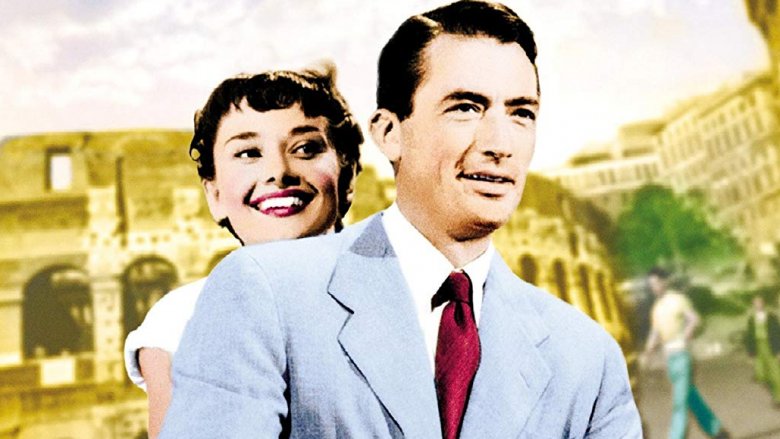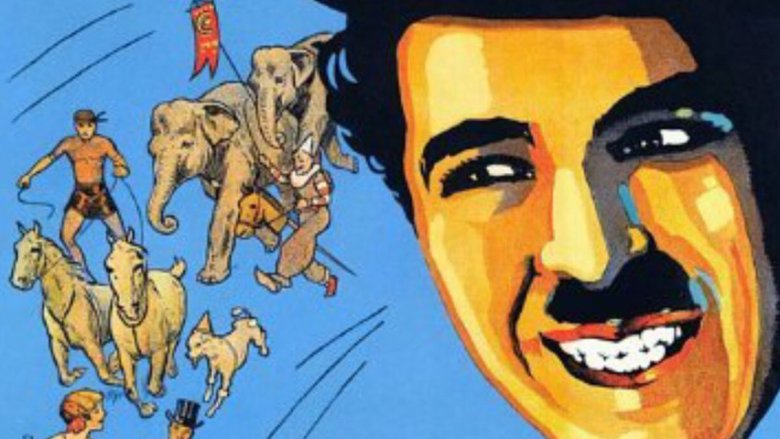Comedies With Surprisingly Sad Endings
When audiences settle in to watch a comedy, be it of the romantic, slapstick, screwball, or adventure variety, there are a handful of things they've been conditioned to expect. One of those things is a happy ending.
The majority of mainstream films have happy (or at least happy-ish) endings, after all. But while dramas, thrillers, and especially horror movies will often close out on dark, depressing, or ambiguous notes, you can usually count on straight comedies to send the audience out smiling. However, every now and then, filmmakers will throw those same audiences a curveball.
For the purpose of this list, we've excluded explicitly dark comedies, such as Dr. Strangelove or The Lobster, since their bleak conclusions aren't really surprising. We've also limited the selection to those films that specifically end on sad notes, as opposed to comedic films that feature sad moments, but that end on a feeling of uplift (think Harold & Maude or 500 Days of Summer). With that in mind, here are some memorable comedies with surprisingly sad endings — and yes, there are plenty of spoilers ahead.
Chasing Amy
Kevin Smith's early films broke the mold when it came to what audiences expected comedies to look and sound like. Rather than focus on plot, romance, or big set pieces, his films featured profane, rambling conversations between directionless slackers who were obsessed with comic books and weed. Still, his first two movies ended on relatively happy notes (although his debut film, Clerks, almost ended with a shockingly violent twist). Credit should therefore be given to Smith for going a very different route with his third feature, Chasing Amy.
When indie comic book writer Holden (Ben Affleck) first lays eyes on the titular Amy (Joey Lauren Adams), he is instantly smitten, but complications ensue when he realizes that she's gay. Despite this, the two eventually get together. Their budding romance drives a wedge between Holden and his best friend/creative partner Banky (Jason Lee), who attempts to sabotage their relationship by revealing some upsetting information about Amy's past relationships to Holden.
Holden attempts to salvage things with both of them by suggesting a threesome, but this ends in disaster. At the end of the film all three go their separate ways, each having grown wiser about themselves, but at the cost of their connection to one another.
The Big Lebowski
There are few filmmakers as synonymous with dark comedies as the Coen brothers. From Barton Fink to Burn After Reading and Inside Llewyn Davis, they've never been afraid to close their stories out on emotionally upsetting and/or challenging notes. Still, the low-key, downbeat ending of their 1998 classic The Big Lebowski comes as something of a surprise, given the general zaniness that precedes it.
While the film's final moments are by no means depressing — the Dude continues to abide by his zen-slacker ethos — they are marked by the lingering sadness over his bowling partner and friend Donny's tragic passing, as well as the fact that the rich villain who set all of the story's chaos in motion managed to get away with everything. The Dude never even gets his beloved rug replaced.
It's not the bleakest ending in the Coen filmography — that honor would go to No Country for Old Men – but it remains a surprisingly somber one.
Love Actually
The British holiday classic Love Actually actually has a number of endings, which is fitting considering that the ensemble comedy contains almost a dozen individual and intersecting storylines. While the majority of these conclude with their characters finding love and happiness, there are a couple that don't wrap up so neatly.
Two particular subplots spring to mind: the troubled marriage between Harry and Karen (played by Alan Rickman and Emma Thompson, respectively), as well as the unrequited feelings shared by coworkers Sarah and Karl (Laura Linney and Rodrigo Santoro). In the former, Karen thinks her husband is planning a big romantic gesture for her, only to discover that he's actually having an affair with one of his employees. Sarah, meanwhile, finds herself on the verge of consummating the years-long crush she's harbored for her hunky office mate, only to be interrupted by the needs of her mentally unstable brother. Ultimately, she chooses her familial obligations over her romantic yearnings.
The montage at the conclusion of the film hints that there is still hope for both couples to overcome their troubles, but whether or not they do, it's left for us to imagine. This note of somber ambiguity suffuses the otherwise treacly ending with a welcome dose of melancholy.
Guardians of the Galaxy Vol. 2
Since taking the world by storm with Iron Man in 2008, Marvel Studios has mixed action with heavy doses of humor (not always to everyone's liking). Among all of their tentpole franchises, the first two Guardians of the Galaxy films are the most humor-laden, so it seems fair to categorize them as comedies. Surprisingly, they are also the two most pathos-laden films in the MCU — or at least they were before Thanos snapped his fingers at the end of Avengers: Infinity War.
While the first Guardians of the Galaxy contained a handful of emotionally powerful scenes ("We Are Groot," anyone?), Vol. 2 straight up closes with a funeral. Granted, the sendoff given to surrogate father figure Yondu (who, like Groot in the first film, sacrifices his own life so that his loved ones can survive) is ultimately redemptive and moving, it's still a funeral. Audiences — both young and old — probably didn't expect the last shot of this summer blockbuster to be a closeup of a talking raccoon as he tearfully watches his friend get laid to rest.
There you have it. If you decide to watch any of the above-listed films, be sure to have plenty of Kleenex nearby. Chances are you'll need them, whether your tears are the result of laughter or sorrow.
The Break-Up
Despite the title and plot of this 2006 comedy, most audiences expected a traditional happy ending, one that would see the central couple (played by Vince Vaughn and Jennifer Aniston) get back together. To the film's credit, that's not what happens. Their characters break up near the start of the film, remain broken up throughout it, and end it single and apart from one another.
A chance encounter between the main characters during the final scene seems to promise a last-minute reconciliation, only for them to wish one another well and go their separate ways. It's not especially tragic or upsetting, but it's certainly a more wistful ending than most other battle-of-the-sexes type film give us.
Apparently, the original ending was supposed to be even less sentimental, but this scene was added at the behest of the studio, who wanted to leave some room for ambiguity towards a possible reconciliation.
Seeking a Friend for the End of the World
Set during the final three weeks before a world-ending asteroid is set to collide with the planet, this romantic road trip comedy (starring Steve Carell and Keira Knightley as heartbroken neighbors) makes good on the apocalyptic promise of its premise. Chances are a lot of viewers were expecting a last minute deus ex machina that would see catastrophe averted at the list minute, but... nope.
Knightley's character says as much in the final moments of the film, as she lies in bed with her newfound soulmate: "I thought that somehow we'd save each other." " We did," he responds, as the sound of the asteroid's impact can be heard in the distance. The two find solace in one another's arms as a bright light washes over them.
It's really the only ending that the film could have had, but that doesn't make it any less wrenching or, given how squeamish studios tend to be when it comes to endings — especially endings in which all every living thing on Earth is wiped from existence — any less surprising.
The Grand Budapest Hotel
Wes Anderson has always infused his quirky, carefully crafted comedies with heavy doses of somberness, even outright tragedy. But for the most part, his movies usually conclude on a graceful and cathartic note, so even his most ardent fans were caught a bit off-guard by the capriciousness of Grand Budapest Hotel's finale.
With the world on the brink of war, lovable dandy and hotelier Gustave H. and his loyal lobby boy Zero find themselves wrapped up in a dangerous plot involving a priceless painting and a series of murders. Although they come out victorious at the conclusion of the main plot, their happiness proves short-lived. A brief epilogue given by an aged Zero details Gustave's unceremonious execution at the hands of fascists soon after the events of the film. His own life is further marked by loss when his young wife dies during childbirth only a few years later. Zero himself has spent the intervening decades overseeing the crumbling Grand Budapest hotel in a lonely attempt to uphold, in the word's of his former mentor, some "faint glimmers of civilization left in this barbaric slaughterhouse that was once known as humanity."
Young Adult
Jason Reitman and Diablo Cody's follow-up to their break-out hit, Juno, saw Charlize Theron play a narcissistic young adult author who returns to her hometown in an attempt to steal her high school boyfriend from his wife and child. While the darkness of that premise may have suggested a less-than-traditional ending, the story tricks you into thinking things will actually work out well for the characters.
Throughout her journey, Theron's character begins to gain a new level of self-awareness, especially as she forms an unexpected bond with a former classmate (Patton Oswald). When her plans to win back her ex fall apart, she finds emotional and physical solace in this new connection, and for a minute it looks like she might actually have stumbled into a healthy relationship, one in which she will find the tools to grow into an empathetic and good person.
Alas, at the last moment she reverts to the comfort of her old ways, leaving her old town (and her new relationship) in the dust. It's a fitting ending for this scabrous comedy, but one that no doubt left audiences feeling more cynical and pessimistic than when they started it.
Time Bandits
Terry Gilliam's 1981 fantasy-adventure-comedy follows 11-year-old Kevin as he's whisked off from his suburban home by a group of pirate dwarfs who travel through time in search of lost treasure. Their quest pits them against Evil incarnate, who is eventually defeated when the Supreme Being (who is, in essence, God himself) casts him in flames and renders him into chunks of charcoal.
Kevin then wakes up back in his bed, his entire adventure apparently a dream. But before he can process this, he and his selfish, consumerist parents have to flee their home, which has suddenly caught fire, the cause of which is a chunk of Evil that's appeared in a toaster oven. Ignoring Kevin's fearful warnings, his parents touch the remnant of Evil and get blown up for their troubles. Kevin, left all alone, stares at the ruins of his home and asks "Mom? Dad?" as the camera pans further and further back.
Gilliam's film has traces of darkness throughout, but this remained a startlingly grim and weird denouement for a child's adventure movie. Though according to Gilliam, it was only grownups who were disturbed by the ending, while younger audiences ate it up.
The Last American Virgin
A remake of the first film in the popular Israeli Lemon Popsicle series, this 1982 teen comedy follows a love triangle between awkward virgin Gary, his popular best friend Rick, and beautiful exchange student Karen. After Rick gets Karen pregnant and abandons her, Gary sells his possessions and borrows money in order to help her get an abortion. The two grow close in the days that follow, and after sharing a kiss it seems as though Gary's love for Karen will be reciprocated. However, a week later, Gary attends Karen's birthday party and walks in on her and Rick making out. He rushes out of the party and drives away, tears streaming down his eyes as the credits roll.
While not as well-known as other raunchy teen romps from the '80s, such as Porky's or Weird Science, The Last American Virgin has maintained a devoted cult following, most of which can be chalked up to its last-minute gutpunch. Of all the films on this list, this one contains what is probably the bleakest ending, in that it contains no underlying sense of redemption, hope, or even melancholy. Life is just cruel sometimes, and that's all there is to it.
The Purple Rose of Cairo
Of all of the movies Woody Allen and Mia Farrow made together during their '80s run, this is perhaps the most critically acclaimed. A large part of that stems from its ending, which remains utterly devastating all these years later.
Farrow plays Cecilia, a poor housewife living during the Great Depression. Stuck in an abusive, loveless marriage, she attempts to escape the trauma of her everyday reality in the comfort of the movies. She becomes particularly obsessed by a new comedy-adventure film about dashing archeologist Tom Baxter (Jeff Daniels). Through the power of magic, the fictional character of Tom gains sentience when he notices Cecilia sitting in the audience. He literally steps out of the movie screen to be with her. She finally gets the courage to leave her brute of a husband, but things become complicated when the real-life actor who played Tom, Gil Shepherd (Daniels, pulling double duty) shows up and falls for Cecilia.
When forced to decide whether to go off with Tom or stay in the real world with Gil, she chooses the latter. However, after Tom leaves, she discovers that Gil never actually cared for her. He was only deceiving her in order to get Tom to go back to his world. Homeless and heartbroken, Cecilia returns to the movie theater, where a new film is playing. The last shot of the film shows Cecilia smiling through her tears, able to escape her pain through the power of cinema. However, we know that this respite is merely temporary.
Allen rarely does traditional happy endings, but even by his standards, The Purple Rose of Cairo ends on a brutally sad note.
Marley & Me
Between 2006's The Break-Up and 2008's Marley & Me, Jennifer Aniston was on quite the roll when it came to starring in mainstream comedies with bummer endings.
Any movie about a the life of pet can probably be expected to get the waterworks going (see Old Yeller), but those who came out to see this family comedy, which centers around a lovable, troublesome canine, probably didn't expect it to end with the titular Marley being euthanized after suffering an attack of gastric dilation volvulus.
True, the film ends with his family burying him and paying their respects, so it's not like there isn't a big heaping dose of emotional catharsis, but still, there were no doubt a lot of crying kids (and adults) when the lights came up on this one. It continues to resonate too, as the second result that comes up in any Google search of the film is "Marley & Me ending."
Roman Holiday
The story depicted in this light romantic comedy from 1953 is a simple one — so simple that it's been recycled countless times in the decades that have followed: a European princess (Audrey Hepburn) touring post-war Europe runs away from the relentless and suffocating responsibilities of her station, and spends 24 magical hours in Rome accompanied by a dashing American newspaper reporter (Gregory Peck) who realizes he's stumbled into the biggest story of his career.
Despite deceiving one another for the majority of the film, the two eventually recognize that they're soulmates. Despite their deep connection, they both recognize that they can't be together, and the princess returns to her duties, having gained a new sense of autonomy over her life.In the final scene, she says goodbye to the reporter as she prepares to return to her home country. We watch as he takes his own leave through the ornate halls of the Roman colosseum, having briefly known true love.
It's a powerful testament to love in all its fleeting glory, but hardly the type of ending that audiences — even back then — were used to from their romantic comedies.
The Circus
This 1928 silent comedy from the legendary Charlie Chaplin features some of his most hilarious examples of his singular brand of physical comedy, as well as one of the most surprisingly melancholy endings in his filmography. The story sees Chaplin's Little Tramp fumble his way into a traveling circus, where his slapstick antics make him a huge draw — as well as a gigantic pain for the outfit's surly ringmaster.
Things get more complicated when Chaplin falls for the ringmaster's daughter. Although she shares deep feelings of personal affection for the Little Tramp, the young girl falls in love with a dashing tightrope walker. Despite his initial heartbreak, the Tramp eventually realizes that the couple belong together, and he goes to great lengths in order to ensure their happiness. The last moments of the film see Chaplin's noble clown sadly sending off the happy couple as the circus departs for new territory, leaving him behind and alone.
The little skip that Chaplin gives during the final moment of the film lets the audience know that he'll be all right, but it's still a surprisingly sad ending, one that's managed to retain its power over 90 years later.
